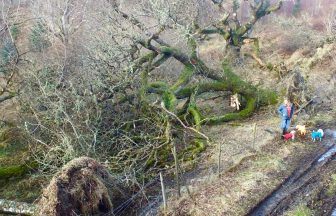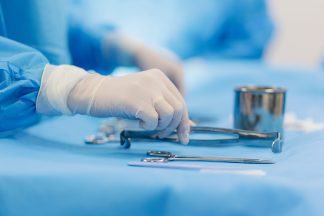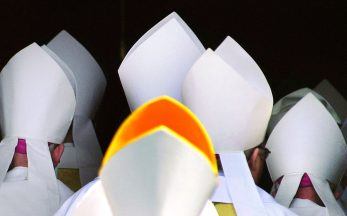A mother has told how she felt “anxious” about every admission to a Glasgow hospital after her son’s “near death experiences” from a hospital-acquired infection.
Colette Gough was told the infection which left her son seriously ill following surgery during his cancer treatment came from the drains at the Queen Elizabeth University Hospital (QEUH) campus in Glasgow and was not an isolated case.
The Scottish Hospitals Inquiry is hearing evidence on problems at two flagship Scottish hospitals that contributed to the deaths of two children.
It is investigating the construction of the QEUH campus in Glasgow and the Royal Hospital for Children and Young People and Department of Clinical Neurosciences in Edinburgh.
Mrs Gough’s ten-year-old son was diagnosed with cancer after he became unwell in July 2018, aged seven, and was found to have a kidney tumour.
He was being treated in the Schiehallion unit, the children’s cancer unit in the children’s hospital on the QEUH campus, and underwent surgery to remove the affected kidney in early September 2018.
The inquiry heard that his condition deteriorated after surgery due to a line infection and medical staff battled to stabilise him, and that the same thing happened the following day, leaving his parents “terrified that this was him going down again”.
Mrs Gough said that in mid-September she and her husband were invited to a meeting with two doctors who explained where the infection had come from.
She said: “They apologised and told us that the infection he had had come from the drains and that he was not an isolated case, that he was one of six children who had fallen ill about the same time and that there seems to be an issue with the building and the drains and the water, and because of that the plan was to close the ward and transfer the whole unit to somewhere else in the hospital.
“At that point they didn’t know where or when that would happen, that they were working with estates to try and rectify the problem.”
Alastair Duncan QC, counsel to the inquiry, asked how this made her feel, to which she replied: “Quite angry, that’s the reason we’re here today because my husband and I really felt let down. We really put our trust and our faith in the hospital.”
Earlier she said that there were signs on the sinks in the Schiehallion unit asking people not to drink the water or pour anything down the drain, and that during the first month of their time at the hospital tap filters appeared.
However she said that staff “played down” concerns about the water and said it was just to keep everybody safe.
The inquiry heard that around that time work was being done on the building cladding, and a window fell out of the adult hospital.
Mr Duncan asked: “Thinking about where things stood, the issues you experienced on ward 2A, the shower water, issues you experienced on ward 3B, two life-endangering events, the now closure of wards 2A, 2B, the move to the adult hospital, an issue with cladding, an issue with windows, possible risk from the work being done, at this point in time how did you feel about the hospital?”
Mrs Gough replied: “Anxious about every single admission and the anxiety levels just kept rising, and the fact that I was still on the bounce back from witnessing my son’s near death experiences and I was just running on pure adrenaline at that point.”
The inquiry was ordered after patients at the Glasgow hospital died from infections linked to pigeon droppings and the water supply, and the opening of the Edinburgh site was delayed due to concerns over the ventilation system.
Earlier this year, an independent review found the deaths of two children at the QEUH campus were at least in part the result of infections linked to the hospital environment.
The review investigated 118 episodes of serious bacterial infection in 84 children and young people who received treatment for blood disease, cancer or related conditions at the Royal Hospital for Children at the campus.
It found a third of these infections were “most likely” to have been linked to the hospital environment.
Two of 22 deaths were “at least in part” the result of their infection, it said.
The inquiry in Edinburgh, chaired by Lord Brodie, continues.
Follow STV News on WhatsApp
Scan the QR code on your mobile device for all the latest news from around the country


 SNS Group
SNS Group

























